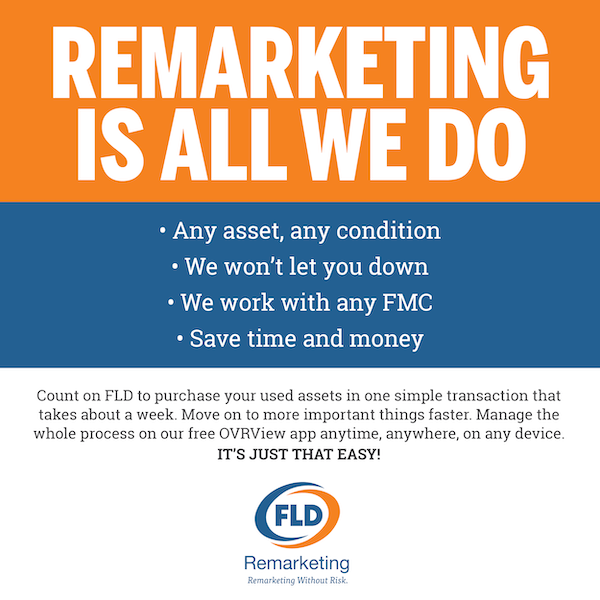
By Ed Pierce, Fleet Management Weekly’s Brand Acceleration
March 27, 2024
B2B businesses, including those in the fleet industry, are facing increasing scrutiny of the recent trend to forgo negotiation when a problem arises and instead demand full restitution.
Though seemingly fair and accountable, this trend often leads to lengthy disputes, damaged relationships, and missed opportunities for collaborative growth. Therefore, negotiation for mutually satisfactory resolutions has never been more crucial.
 Let’s examine the importance and challenges associated with negotiation, the rising trend toward demanding full restitution, and the strategies to create an environment conducive to effective negotiation that can foster sustainable business relationships and outcomes.
Let’s examine the importance and challenges associated with negotiation, the rising trend toward demanding full restitution, and the strategies to create an environment conducive to effective negotiation that can foster sustainable business relationships and outcomes.
Demanding Full Restitution
Demanding full restitution may appear to be in pursuit of fairness; however, often, its implications fail to account for the complexity and interconnections inherent to B2B relationships.
This approach may lead to several unfortunate results:
- Protracted Disputes: Pressuring parties for full restitution can lengthen resolution processes, increasing legal expenses while diverting resources away from productive business endeavors that would yield better productivity gains and resource usage returns.
- Strained Relationships: Recouping full restitution can strain or fracture existing business relationships, decreasing chances for collaboration and mutual growth in the future.
- Missed Opportunities for Improvement: Companies that solely focus on restitution risk missing opportunities to identify underlying issues, implement improvements, and prevent future conflicts.
Negotiation Offers a Flexible Solution
Negotiation is an efficient and collaborative way of resolving disputes and challenges in B2B settings. It allows parties to explore solutions that meet everyone’s interests while producing mutually beneficial results.
 Negotiation encourages open dialogue and collaborative effort among business partners, ultimately strengthening their trust and relationships. Through negotiations, parties can often craft unique and tailored solutions to address the unique circumstances of their dispute, often leading to more effective and satisfactory outcomes.
Negotiation encourages open dialogue and collaborative effort among business partners, ultimately strengthening their trust and relationships. Through negotiations, parties can often craft unique and tailored solutions to address the unique circumstances of their dispute, often leading to more effective and satisfactory outcomes.
Negotiated resolutions may be more time and cost-efficient than seeking full restitution through legal channels. This allows businesses to focus their resources on core activities without incurring total restitution costs.
Strategies to Foster a Negotiation-Centric Culture
Businesses looking to maximize negotiation in business-to-business settings can use various techniques, including training and education to provide negotiation techniques to equip managers with the skills needed for effective negotiations. The importance of learning how to establish clear communication channels with business partners can foster early and efficient resolution of disputes.
Proactive relationship management allows the handling of disputes collectively before becoming irreconcilable. It starts by creating policies that encourage flexibility and creativity not only to resolve disputes, but to emphasize the need for maintaining positive business relations.
When conducting negotiations efficiently, seek out technology platforms that support efficient negotiation processes, such as dispute resolution tools or contract management systems.
Apprehension and Lack of Negotiation Skills
Newly promoted managers often experience fear of giving away too much power if they engage in negotiations, leading to anxiety about engaging in professional settings for negotiation purposes.
Anxiety over negotiation skills may contribute to this discomfort, thus making teaching negotiation skills essential in helping new managers resolve disagreements and experience tremendous personal and professional success.
Overcoming Communication Barriers
While digital communications may be preferred by the newer generations of managers, face-to-face meetings — especially when dealing with problem resolution — encourage participants to stay focused, lead to more productive meetings, and foster a better understanding of each partner’s needs and points-of-view.
 Digital communication can introduce various barriers, such as physical, emotional, identity, semantic, and accessibility issues, while face-to-face interactions mitigate these barriers and allow for immediate clarification and adaptation based on visual and auditory cues. These personal interactions are crucial for building trust and rapport that lead to quicker decision-making and problem resolution.
Digital communication can introduce various barriers, such as physical, emotional, identity, semantic, and accessibility issues, while face-to-face interactions mitigate these barriers and allow for immediate clarification and adaptation based on visual and auditory cues. These personal interactions are crucial for building trust and rapport that lead to quicker decision-making and problem resolution.
A Strategic Point-of-View
With the fleet market continuously shifting and vendor partnership relationships bound by SLAs and KPIs, performance standards would seem to be cut-and-dry at first blush. From a more strategic point of view, negotiation may be the best form of dispute resolution for building or sustaining a valuable business relationship that offers long-term benefits.




